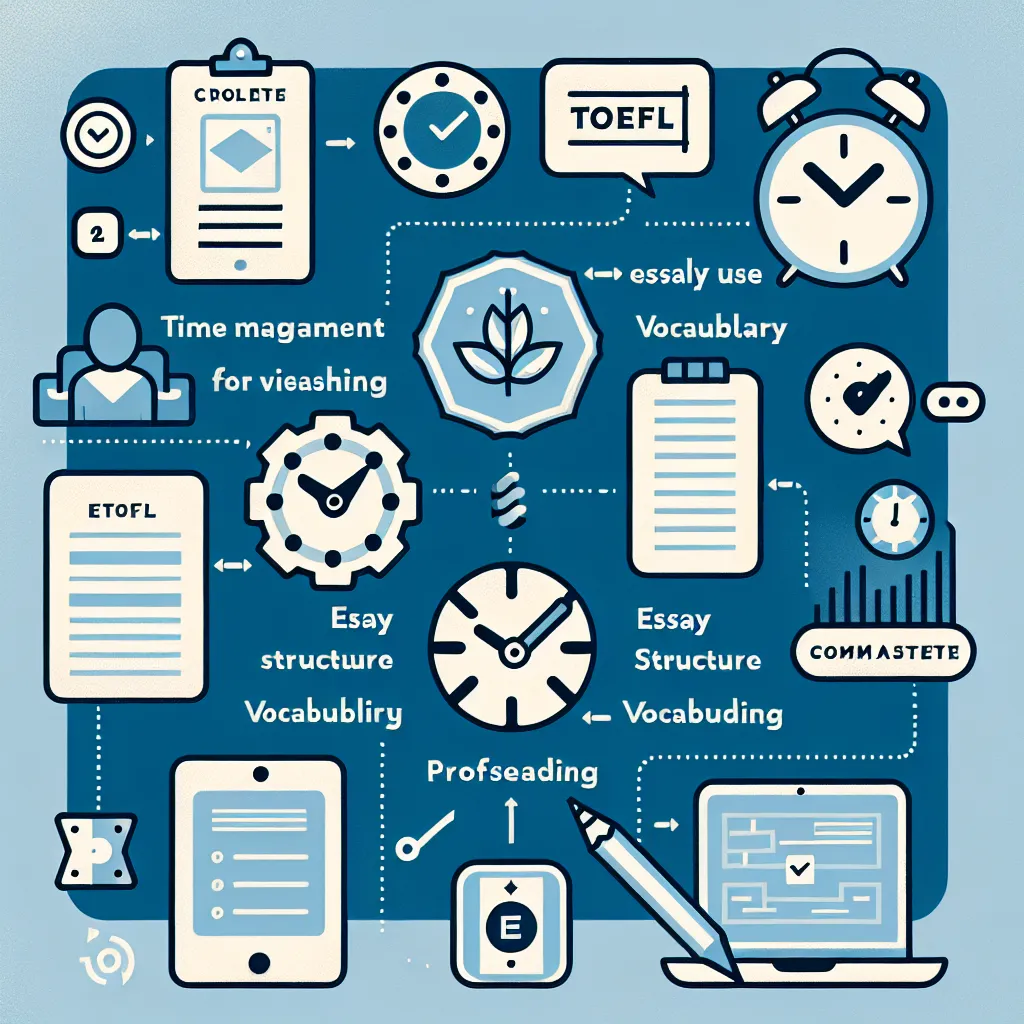The TOEFL Writing Task 2 is a crucial component of the TOEFL iBT exam, testing your ability to compose a well-structured, coherent essay in English. Understanding its format is essential for success in this section. This comprehensive guide will walk you through the structure, requirements, and strategies for mastering the TOEFL Writing Task 2.
Overview of TOEFL Writing Task 2
TOEFL Writing Task 2, also known as the Independent Writing Task, requires test-takers to write an essay expressing and supporting their opinion on a given topic. This task assesses your ability to articulate ideas clearly, organize thoughts logically, and use English effectively in an academic context.
 TOEFL Writing Task 2 Format
TOEFL Writing Task 2 Format
Key Features of TOEFL Writing Task 2
- Time Limit: 30 minutes
- Word Count: Typically 300-350 words (minimum recommended)
- Topic: General interest subject, accessible to a broad audience
- Task: Express and support your opinion on the given topic
Essay Structure for TOEFL Writing Task 2
A well-structured essay is crucial for success in TOEFL Writing Task 2. Here’s a recommended format:
1. Introduction (1 paragraph)
- Hook: Start with an engaging opening statement
- Background: Provide brief context on the topic
- Thesis Statement: Clearly state your position on the issue
2. Body Paragraphs (2-3 paragraphs)
- Topic Sentence: Introduce the main idea of each paragraph
- Supporting Details: Provide examples, reasons, or evidence
- Explanation: Elaborate on how the details support your thesis
- Transition: Use linking words to connect ideas and paragraphs
3. Conclusion (1 paragraph)
- Restate Thesis: Summarize your main argument
- Final Thoughts: Provide a closing statement or call to action
Key Components of a Strong TOEFL Writing Task 2 Essay
To excel in TOEFL Writing Task 2, focus on these essential elements:
1. Clear Thesis Statement
Your thesis should clearly state your position on the topic. For example:
“While both online and traditional classroom learning have their merits, I believe that traditional classroom learning is more effective for most students due to its structured environment, immediate feedback, and social interaction opportunities.”
2. Coherent Organization
Use a logical structure to present your ideas. Each paragraph should focus on a single main point that supports your thesis.
3. Specific Examples and Details
Support your arguments with concrete examples, personal experiences, or relevant data. This adds credibility to your essay.
4. Varied Sentence Structure
Use a mix of simple, compound, and complex sentences to demonstrate your language proficiency.
5. Academic Vocabulary
Incorporate appropriate academic words and phrases to showcase your English language skills.
Tips for Success in TOEFL Writing Task 2
Follow these strategies to maximize your performance:
1. Practice Time Management
- Spend 2-3 minutes planning your essay
- Allow 20-25 minutes for writing
- Reserve 2-3 minutes for proofreading
2. Use a Template
Develop a flexible essay template that you can adapt to different topics. This can help you organize your thoughts quickly.
3. Focus on Clarity
Express your ideas clearly and directly. Avoid unnecessarily complex language that might lead to errors.
4. Develop Your Ideas
Don’t just state your opinion; explain why you hold that view and provide specific supporting details.
5. Proofread Your Essay
Always leave time to review your essay for grammar, spelling, and punctuation errors.
 TOEFL Writing Task 2 Tips
TOEFL Writing Task 2 Tips
Common Mistakes to Avoid in TOEFL Writing Task 2
Be aware of these pitfalls:
- Straying off-topic
- Writing too little (less than 300 words)
- Using informal language or slang
- Neglecting to provide specific examples
- Failing to clearly state your position
Conclusion
Mastering the format of TOEFL Writing Task 2 is crucial for achieving a high score on the TOEFL iBT. By understanding the structure, focusing on key components, and following the tips provided, you can approach this task with confidence. Remember, consistent practice is key to improving your writing skills and achieving your desired TOEFL score. Keep refining your essay-writing techniques, and you’ll be well-prepared to tackle any topic that comes your way on test day.




